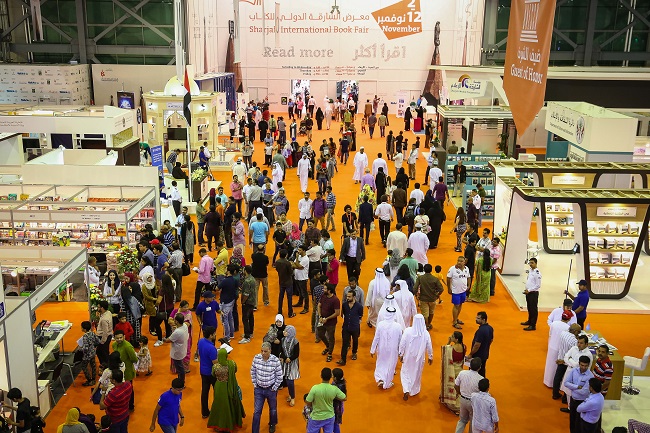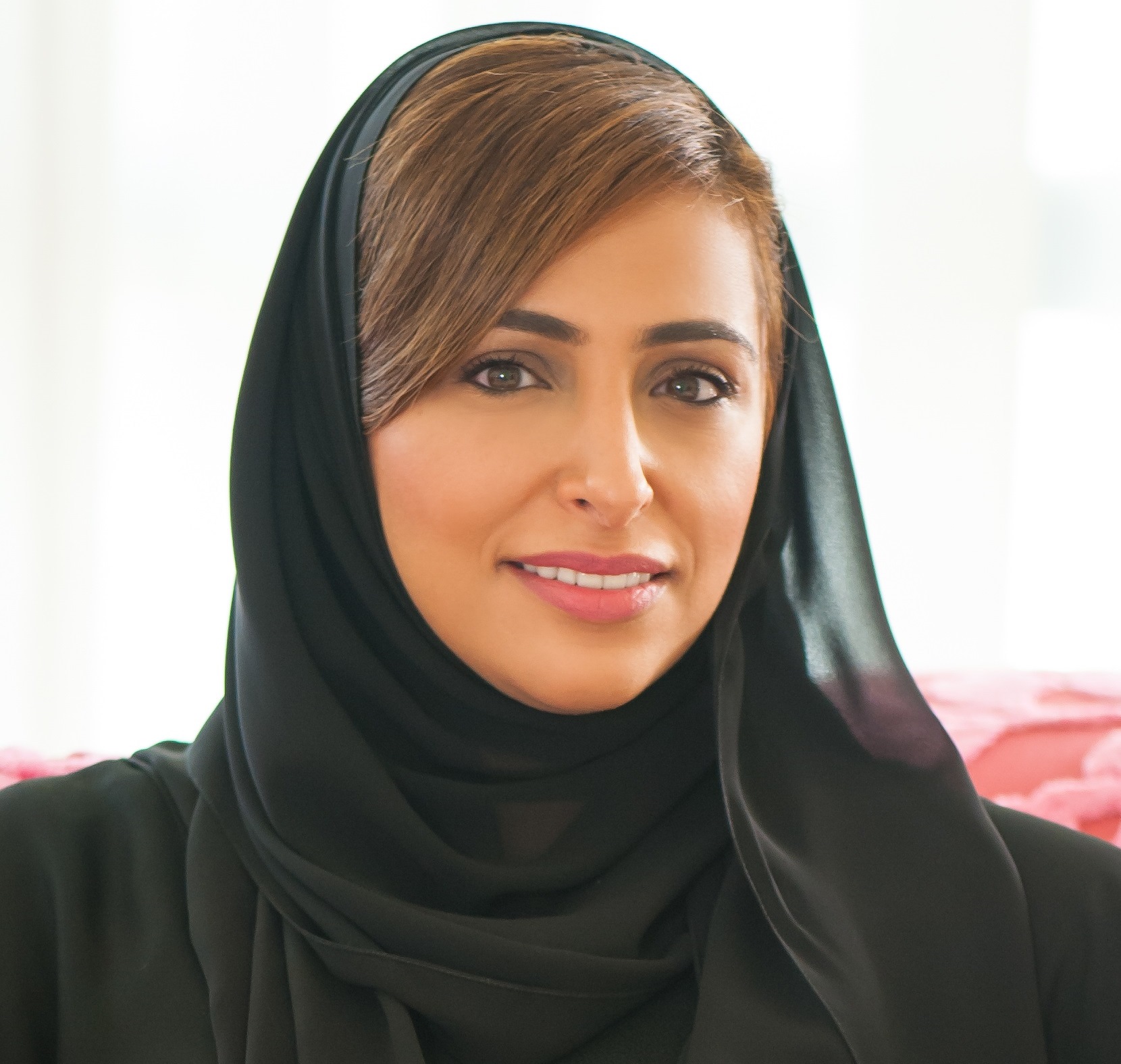
As the world changes, the UAE publishing industry adapts in step, transforming itself into a cohesive, professional community where learning is a daily occurrence. Keeping this in mind, the UAE has identified 10 goals for the publishing industry’s transformation through clear communication between the various partners and stakeholder
These goals are to build and develop:
- Partnerships
- A global publishing hub
- An improved legal framework
- Quality Arabic content
- Educational publishing
- Reading for pleasure
- Distribution and retail
- Transformed libraries
- Pride and understanding
- Creative skills
And as we focused on these goals, we held in our minds two questions:
- What can we do as a publishing community to spread knowledge and embrace a far broader range of learning and cultures?
- What can we as a nation and industry do to encourage people to be part of the publishing industry?
By creating the Emirates Publishers’ Association (EPA), we have strengthened the partnerships between the various stakeholders. The EPA in turn has developed a national publishing agenda to identify industry needs and challenges, and foster dialogues to promote reform and enhance coordination.
Over the years the UAE has become a true global publishing hub, with more than 10 ‘free zones’ for creative industries, including Sharjah Publishing City. Central to achieving this has been the successful delivery of the world-renowned international book fairs in Abu Dhabi and Sharjah, which draw publishing professionals and related industry experts from far and wide. Additionally, the UAE has delivered industry support programmes for international rights trading and translation, with the EPA supporting international publishers to explore market opportunities. And by actively participating as a full member of the International Publishers Association (IPA), the UAE is cutting a path for fledgling publishing states to follow.
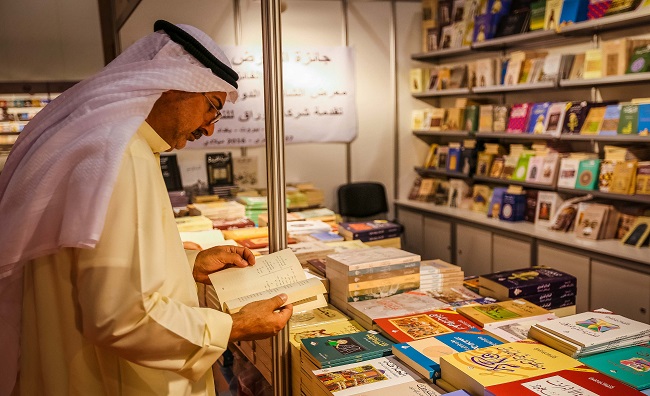
Recently, the UAE President His Highness Sheikh Khalifa Bin Zayed Al Nahyan implemented a law — which came into force on 1 November 2016 — consolidating reading in society. The law obliges the UAE government to intervene early by providing a so-called ‘Knowledge Briefcase’ of useful books to mothers of newborns; it exempts books and reading materials from the soon-to-be-implemented value added tax (VAT); and it guarantees employees’ right to do specialized reading during working hours. This progressive step, which the Vice-President and Prime Minister of the UAE, Sheikh Mohammad bin Rashid Al Maktoum, has described as ‘an unprecedented cultural and legislative initiative’, attests to the deep understanding of the importance of books. And it cements publishing’s place at the heart of the UAE’s national development strategies for years to come.
The UAE publishing industry takes pride in being forward-thinking and progressive; we have strengthened our ability to respond to copyright violations, continually updating laws governing online infringement and ensuring they are aligned with the Berne Convention and WTO-TRIPS. In addition, we are expediting the process to review books for circulation licensing. It is equally important to note how EPA has evolved into a leading voice for establishing the Arab region’s first reprographic rights organization (RRO). Since 2009, the EPA has pioneered the push for collective rights management in the UAE, leading discussions with the Ministry of Economy, the Emirates Writers’ Union and Emirates Intellectual Property Association. The EPA has worked with the ministry to identify international best practices, drawing on the expertise of the Copyright Clearance Centre and WIPO as necessary.
Our vision is to provide simple publishing solutions for an increasingly complex and congested world; the initiatives we have introduced have provided a good platform from which to do this. But in looking forward we must not forget that if we fail to publish more high quality Arabic content, then everything else we do is merely peripheral. With this as one of our 10 goals, we honour literary achievement in Arabic. We have introduced development programmes to enhance publisher market orientation and author programmes to assist publishing, distributing, and promoting literary works. In addition, there are translation and foreign rights support programmes in place.
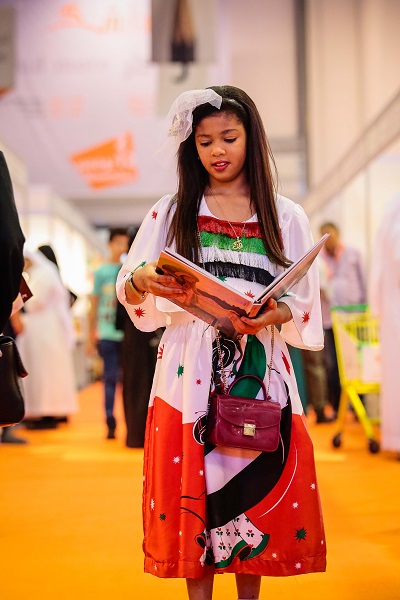
In response to increasing digitization and the need to reach younger people, we are strengthening educational publishing and integrating smart technologies into classrooms. One example is the ‘Darfa’ initiative, which enables teachers to integrate literacy into classes via interactive experiences. There are also capacity development programmes, like ‘Made in UAE’ and ‘Qalam’, to enhance diversity of Arabic children’s books and educational material.
Reading plays a central role in character development and, since 2016 is the ‘Year of Reading’ in the UAE, we have been spreading love of the written word by encouraging youngsters to read for pleasure. We have home library programmes that distribute books to families, author support programmes to promote local talent, such as ‘1001 Titles’, and we held the ‘Arab Reading Challenge’, which has inspired 2.5 million children in the region to read 50 books at 20,000 schools. Most importantly, we implemented the UAE National Reading Strategy, which dedicated $30 million in funding to 30 national initiatives across different communities.
As we have worked our way across the region, we have also been developing and updating our distribution and retail channels. So far we have enhanced participation of publishers at key UAE and international book fairs, developed schemes to facilitate buying and selling of translation and distribution rights, and we are launching the region’s largest book distribution company at Sharjah Publishing City.
One of our key strategies has been to make young people the focus, because they will grow up to be the leaders of the region. With this in mind, we have transformed our libraries into community hubs for genuine social interaction. The UAE is also planning to build the Mohammed bin Rashid Library which, with 1.5 million books, one million audio books and two million e-books, will be the largest library in the Arab world.
We have been enhancing collections throughout the libraries in the region, particularly children’s and nonfiction titles, partnering with the American Libraries’ Association to adopt latest trends and bring mobile and pop-up libraries to people without access to static ones.
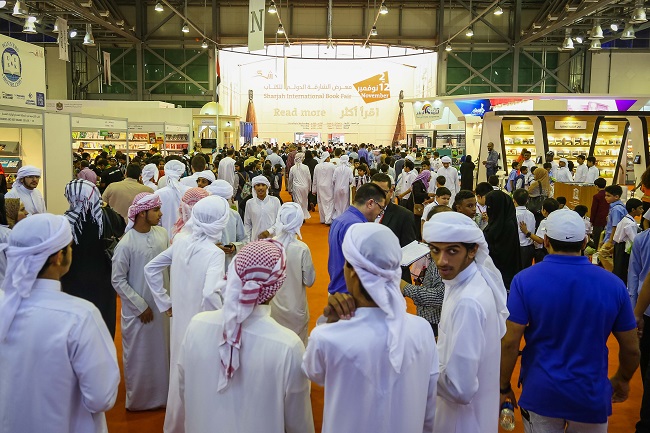 We carry out all our publishing initiatives with pride and honour; it’s no exaggeration to say we have established publishing as a source of national pride. We continue to educate our youth to take an interest in culture and heritage, and we make literacy and reading pillars of humanitarian work, such as the Sharjah IBBY Fund. This wonderful programme has distributed books and reading materials to children and young adults in conflict affected areas of the Arab world, offering glimpses of joy and hope.
We carry out all our publishing initiatives with pride and honour; it’s no exaggeration to say we have established publishing as a source of national pride. We continue to educate our youth to take an interest in culture and heritage, and we make literacy and reading pillars of humanitarian work, such as the Sharjah IBBY Fund. This wonderful programme has distributed books and reading materials to children and young adults in conflict affected areas of the Arab world, offering glimpses of joy and hope.
The UAE published ‘Baba Zayed’ – the first book in the world that used 3D VR to enable children to read and at the same time experience a 360-degree interaction with the characters, connecting the UAE’s young digital natives to their heritage and culture.
We recognize the importance of creativity, and have been investing in the creative arts and industries. Besides enhancing professional development programs at key UAE book fairs, we have liaised with international learning institutions, such as New York University’s Center for Publishing and Yale University, to broaden education offerings in publishing, library sciences and arts.
Of course, there is more work to do, there are challenges to face and obstacles to overcome. But we have come in just a few years ago. My faith in the future is based on the clarity of our strategy and its objectives because we are able to identify the key stakeholders and partners to engage with, and because it helps us to unify our efforts and vision for more effective results.
As we move towards new publishing horizons and keep learning ways to keep our stakeholders engaged, we need to take an honest approach, which is why we have laid out the 10 key goals. We’ve broken a complex jigsaw puzzle into 10 simple, manageable pieces, so that when they are put together they will reflect the complete, coherent, future publishing landscape of the UAE.

